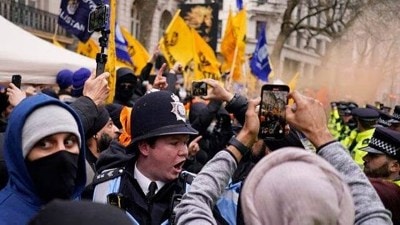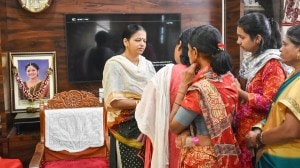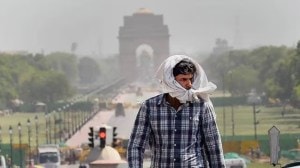- India
- International
Pvt labs begin antibody testing, open to all
At present, the city is testing using two strategies — RT PCR, and rapid antigen testing, which provides quicker results.
 During the test, a blood sample is collected to determine if a person is infected with the novel coronavirus. (Express Photo by Tashi Tobgyal)
During the test, a blood sample is collected to determine if a person is infected with the novel coronavirus. (Express Photo by Tashi Tobgyal)
SEVERAL PRIVATE labs in Delhi have started antibody testing for Covid-19, used to assess if a person has contracted the infection or not. The blood test is available in most top private labs and hospitals, and does not require a medical prescription.
This comes days after the ICMR issued revised guidelines on Covid testing. On June 23, it stated that RT-PCR (real-time polymerase chain reaction) test was the “gold standard” for detecting the infection. However, it allowed private labs to perform ELISA antibody tests for surveillance.
Soon afterwards, the Delhi government issued an order on June 28 asking all hospitals, nursing homes, district magistrates, and labs to follow the advisory. Delhi has already collected 23,000 samples as a part of a serological survey using the Covid Kavach Elisa testing kit and results will be declared by July 10.
Dr Lal PathLabs kicked off antibody testing on July 5 and is currently offering Antibody IgG at Rs 1,400. City X-ray and Scan Clinic also started services a few days ago, and offer the test at Rs 900.

At present, the city is testing using two strategies — RT PCR, and rapid antigen testing, which provides quicker results.
“The (antibody) test is to determine sero-prevalence in a population. There is no prescription required to get it done. We are conducting this test on request from individuals. This is not a diagnostic test, it mainly helps to check if a person has developed immunity (antibodies) to the disease. It will also give an indication of the infection load and recovery rate in a community,” said Dr Sandeep Budhiraja, group medical director, Max Hospital.
During the test, a blood sample is collected to determine if a person is infected with the novel coronavirus. It will also be used to detect if the person was infected with the virus in the past and identify antibodies being produced to combat Covid-19.
“If a person tests positive for IgM, it indicates he/she has an active infection. In such cases, we suggest they go for a diagnostic test. If a person tests positive for IgG, it means they have developed immunity… If a good number of people test positive for the antibody test, it means the city is on the correct path,” said Dr Rajesh Chawla, respiratory and critical care, Indraprastha Apollo Hospitals. The hospital has also started IgG/IgM antibody testing.
Results are out in a day. But in absence of any clarity on charges, each lab and hospital has a different test rate varying from Rs 800-Rs 1,500. ICMR guidelines further said the test will “help in allaying fear and anxiety of healthcare workers, office employees, etc”.
Dr Arjun Dang, CEO of Dr Dangs Lab who started the service last week, said the test will help in “unlocking” the lockdown. “We have started IgG qualitative test and are in touch with several corporate houses who are planning to open up in a phased manner. This test (antibody) will add value in opening up the lockdown as it gives clarity about the prevalence of the disease.” The lab gets a form filled by an individual asking for basic details, profession and also explains the test’s importance.
“It is highly beneficial for health workers, plasma donors, employees… Those who have high-titer IgG antibody can donate plasma,” said Dr S L Jain, head blood bank, Fortis Hospital, Vasant Kunj, adding that the test has started in several Fortis hospitals.
As per experts, the test will also help identify people who can donate plasma. “If labs can inform us about a fit donor, it will help us collect more plasma, which in turn will widen the use of plasma therapy. It takes two weeks for antibodies to develop after exposure to infection. People can get themselves tested in labs and should be encouraged to donate for a greater cause,” said Dr S K Sarin, head of the Institute of Liver and Biliary Sciences, which set up India’s first plasma bank in coordination with the Delhi government.
Apr 26: Latest News
- 01
- 02
- 03
- 04
- 05








































